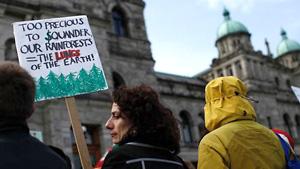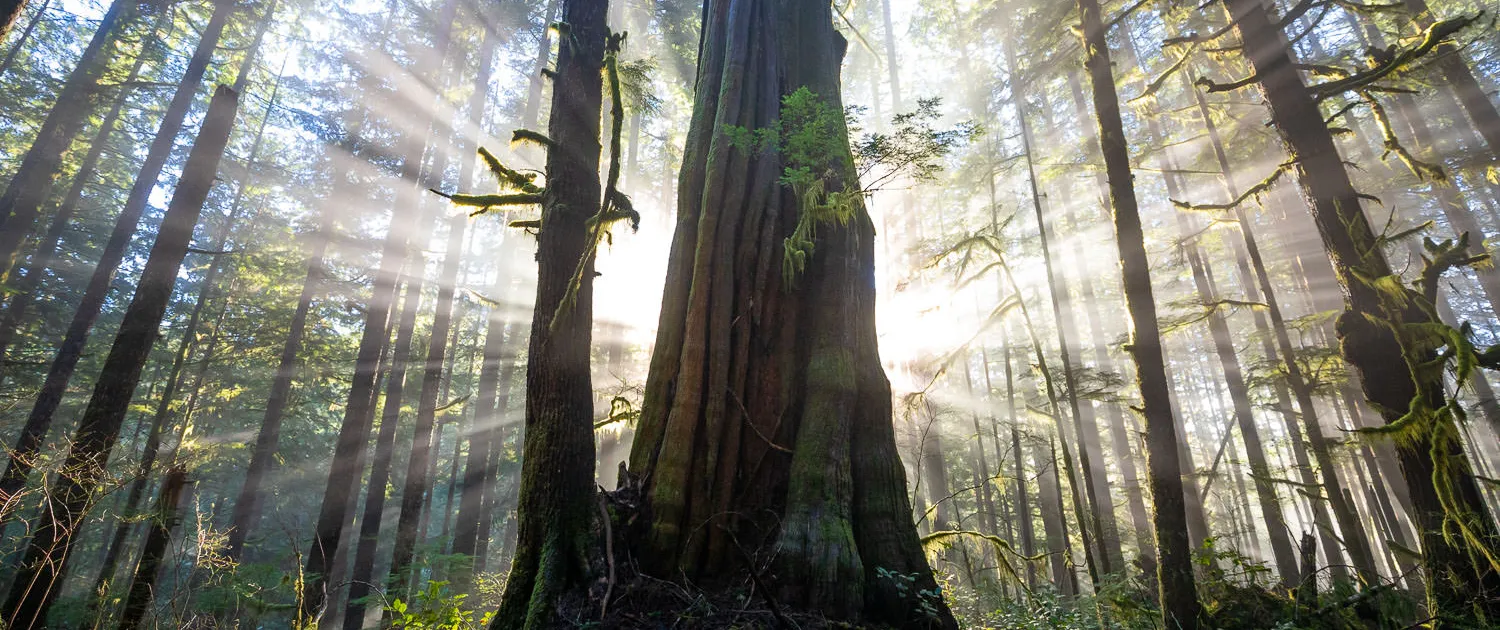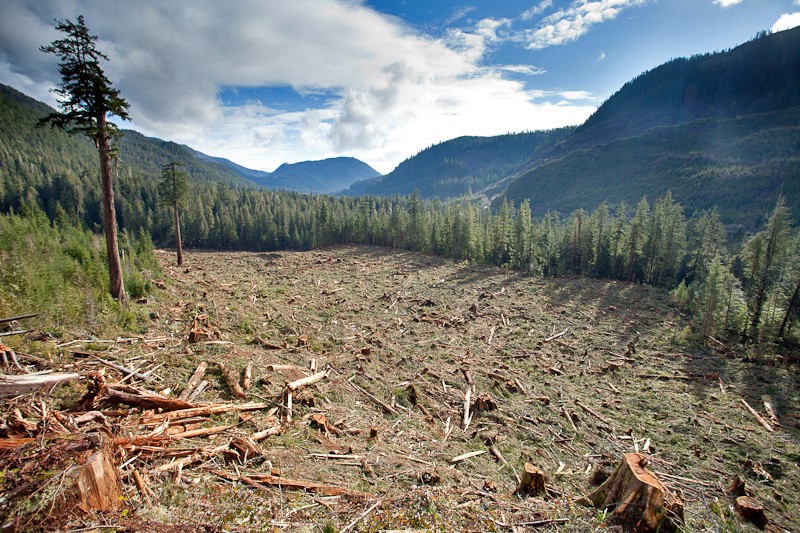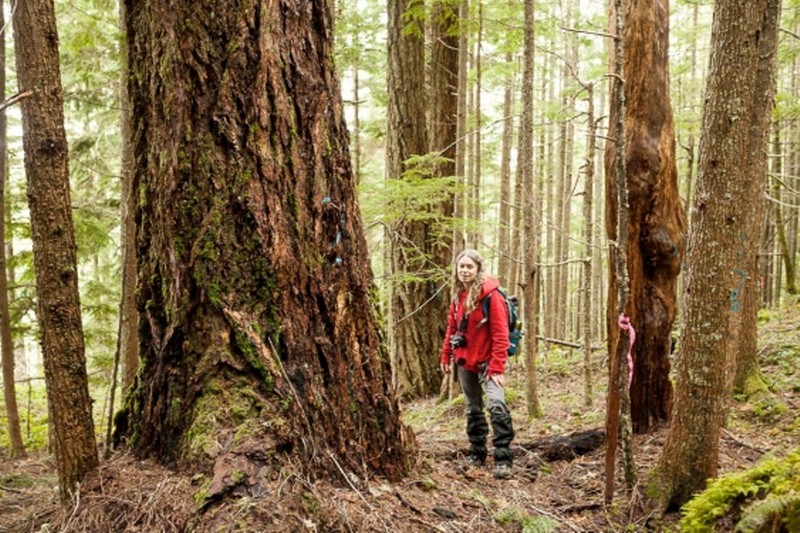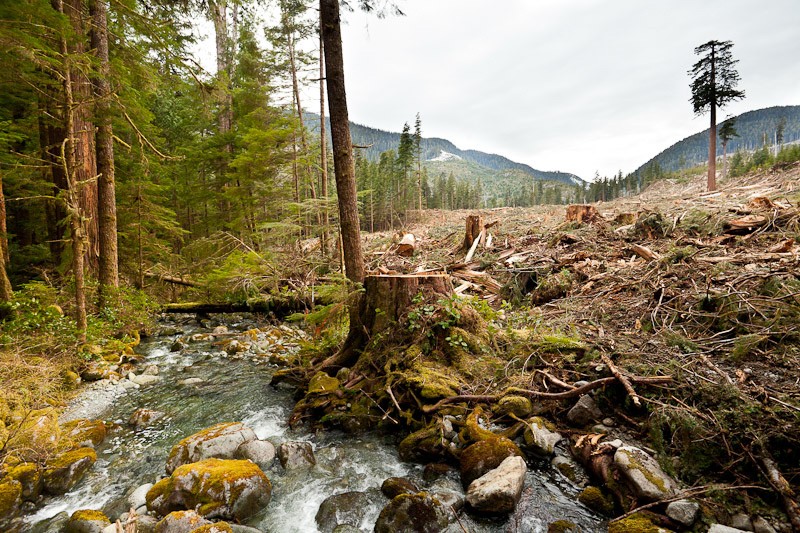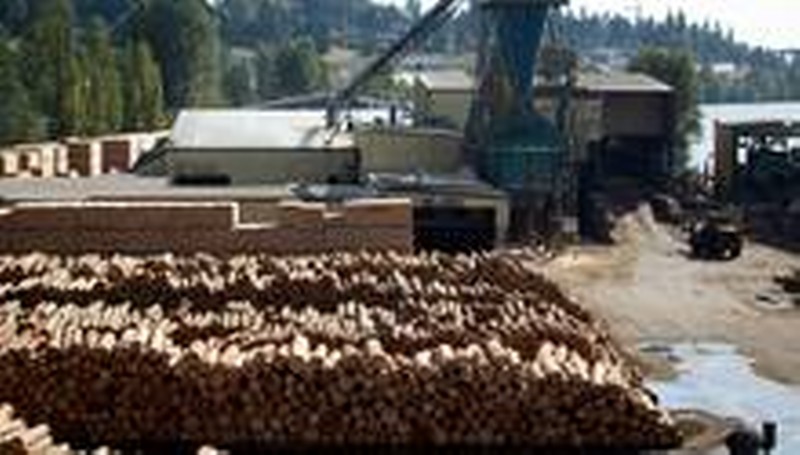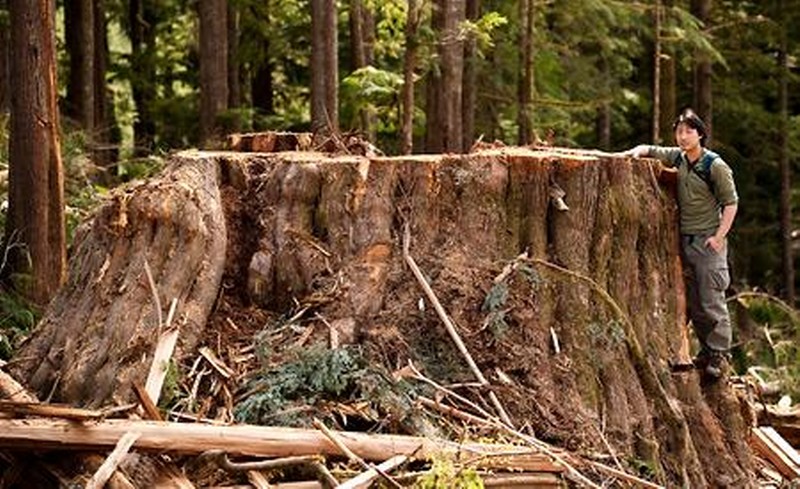The fight to protect what’s left of old-growth forests
Let’s forget about the end of oil for a moment and worry about something more immediate: the end of old-growth forests.
British Columbia is the last place in Canada where you can still find ancient, monumental trees standing outside parks. We are not talking here just about big, old trees, but about trees 250 to 1,000 years old, that tower 70 metres in height. If one grew on the steps of Parliament, its tip would block out the clock face on the Peace Tower. And set down in Vancouver, they would be as tall as many office towers.
Surprisingly, it is still legal in B.C. to cut down trees like that. And so many of these giants have been cut over the past 20 years, says Ken Wu of the Ancient Forest Alliance, that the end of old growth is near.
“We’ve just about hit it already in the coastal Douglas-fir zone,” he said. “On eastern Vancouver Island, we’ve got 1 per cent of old growth left. On the south Island, south of Alberni, we’ve got about 10 per cent left.”
Three years ago, Mr. Wu founded the Ancient Forest Alliance, a small group dedicated to just one task – saving old trees. Since then, he and his colleagues have spent a lot of time tramping around coastal forests, mapping groves of giant trees – and pleading with the government to protect them.
They have successfully saved some patches of forest, such as the now-famous Avatar Grove, which has become a tourist attraction near Port Renfrew. But Mr. Wu has lost a lot of fights, too, returning to find stumps where there had been a majestic cathedral of trees.
“The place that stands out for me is in the Walbran Valley [on the West Coast of Vancouver Island.] … It really is a Jurassic Park landscape. You’d think there would be Brontosauruses walking through there, with enormous trees, hanging mosses and ferns everywhere. … But in the last few years, we’ve seen the area logged. It looks like Swiss cheese now. Huge stumps as large as my living room where there used to be trees as tall as a downtown skyscraper.”
Mr. Wu doesn’t mince words when asked what he thinks of scenes like that.
“So when you are getting down to the last of an ecosystem and the government is not doing anything to stop that, not only is that criminal negligence, it’s being an accomplice to the crime,” he said.
Of course, it is perfectly legal in B.C. to take a chain saw and cut down a tree that is 200, 400 or even 1,000 years old. Loggers don’t have to get special permits just because a tree is exceptionally old, or remarkably big. If it is in an authorized cut block, it can be logged – and for a long time, it seemed only Mr. Wu and a handful of other environmentalists have heard those giants fall.
But slowly a public distracted by debates over tanker traffic, oil pipelines and coal ports, is turning its interest back to the fate of B.C.’s iconic old-growth forests.
When the Ancient Forest Alliance started a petition recently calling for the protection of B.C.’s endangered old growth, 22,000 people signed up. Another 1,800 confirmed on the group’s website and Facebook page that they would attend a protest rally at the legislature.
Mr. Wu is hopeful that this growing public awareness will encourage the government to make policy changes. “The main goal is to get a provincial old-growth strategy in place that would inventory old growth and protect it in regions where it is scarce,” he said. “At the same time, we recognize that there’s a lot of people working in the forest industry.” Mr. Wu believes B.C. could get more value out of logging second-growth timber. He also thinks the province should stop exporting whole logs.
He feels confident government can be persuaded to act before the last old growth is logged.
But on Sonora Island, near Campbell River, a group of residents went for a walk in the woods recently and this is what they found – towering, 600-year-old trees marked to be cut.
If that logging goes ahead, B.C. will have lost another piece of the 1 per cent of old growth that remains in the area. That puts us pretty close to the end of the game.
Link to online article: www.theglobeandmail.com/news/british-columbia/the-fight-to-protect-whats-left-of-old-growth-forests/article9868144/

